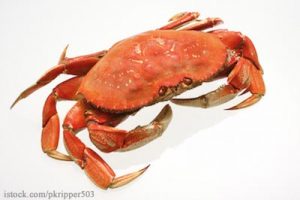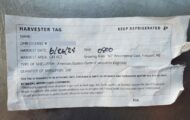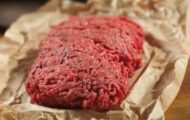The Maine Department of Marine Resources has closed a seven square mile area at the mouth of the Penobscot River to crab and lobster harvest for a minimum of two years. This closure will take effect February 22, 2014. Commissioner Patrick Keliher said, “this closure is being taken as a precautionary measure in response to information the Department of Maine Resources recently received about mercury contamination in muscle tissue from lobsters found in this area.”
 The information is from a federal court ordered study prompted from a lawsuit against a chemical company, HoltraChem Manufacturing, that allegedly dumped mercury into the river. State officials were briefed about the high levels of mercury contamination in 2010. The Maine Department of Marine Resources said it didn’t find out about the contamination until November 2013. The state is not part of the lawsuit.
The information is from a federal court ordered study prompted from a lawsuit against a chemical company, HoltraChem Manufacturing, that allegedly dumped mercury into the river. State officials were briefed about the high levels of mercury contamination in 2010. The Maine Department of Marine Resources said it didn’t find out about the contamination until November 2013. The state is not part of the lawsuit.
The Maine Marine Patrol will work with harvesters to make sure all gear is removed from the area, even though most commercial harvesting has stopped for the year. The DMR, the Maine Department of Environmental Protection, and the Maine Department of Health and Human Services will monitor the level of mercury in lobsters and crabs in and near the closed area for the next two years. Then, they will decide whether or not to open the area to fishing.
The seven squares miles is a small part of the 14,000 square miles where the shellfish are harvested. Officials say that the lobsters from the closed area are still safe to eat, but they recommend that “sensitive populations” limit their consumption.
The level of mercury in fin fish that triggers a consumption advisory for the most sensitive population is 200 nanograms. At that level, pregnant and nursing women and children under the age of 8 should eat no more than one 8 ounce meal of fish per week, which is about the yield of two whole lobsters. Officials believe that there is reason to be concerned about crabs as well, even though there is much less data available for that species in the study. It would be a good idea for vulnerable populations to limit their consumption of both species harvested in this area.




